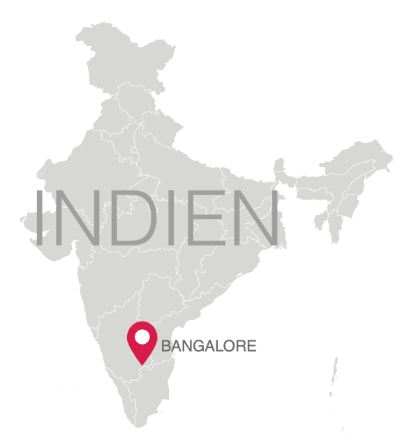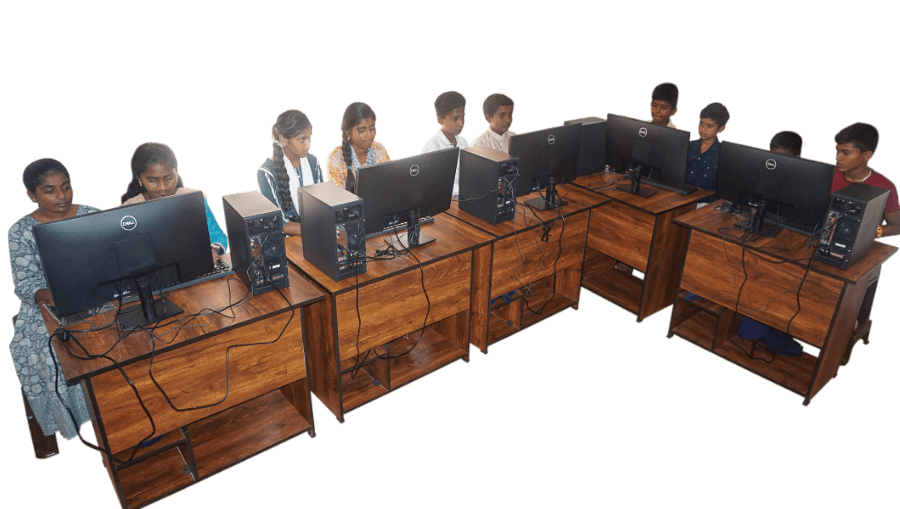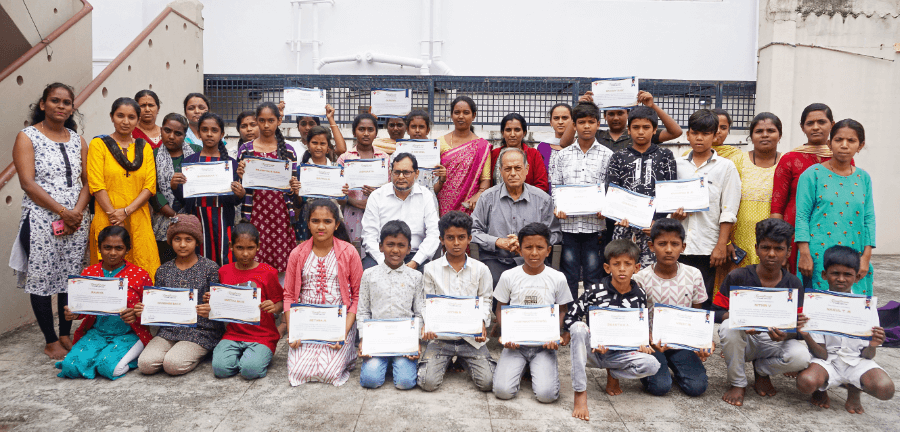Text Sarah Benscheidt ––– Photography
Getting prepared for the digital world – it sounds mundane, but the goal of the new pilot project initiated by the Debora Foundation India (DFI) has hidden depths and opens the door to completely new ways of life.
“Children living in poverty in India’s rural villages have barely any access to high-quality education. The aim of our computer courses is to give them access to digital resources,” says Thomas Rajkumar, Managing Trustee of the DFI, who has decades of experience in education and development aid. Building genuine bridges is, he says, the best way to overcome digital divides.
Helping people help themselves
Some of the young participants (in school years 6 and 7) from the villages around Bangalore have to walk for hours to reach these bridges, which don’t just span gaps in their education but can also guide them into a new future. As Rajkumar explains, these children would have virtually no chance of acquiring (digital) literacy skills within their families. Their parents, many of whom are day labourers, often have no way of breaking the cycle of poverty on their own. That is exactly why the Debora Foundation endeavours to help people help themselves. It has already set up Educational Activity Centres in the villages, providing tutoring for schoolchildren as well as sewing and cosmetics courses for young women.
Building genuine bridges
According to Rajkumar, the specific vision of the new computer pilot project is to improve educational and career opportunities for marginalised young people. This is working out well. Having begun as a one-month course for 24 children – twelve boys and twelve girls – the project has got off to such a good start that it is now to be turned into a permanent programme supported by 50,000 euros from the Friedhelm Loh Group’s annual employee donation.
Rajkumar reveals that many parents have been very positive about the impact of the course and that teachers, too, have already reported significant early learning achievements. As for the kids, he says their keen interest has underlined the importance of the programme and its integrative effect: “The pilot initiative has shown huge potential. The children have quickly grasped that digital literacy gives them tools for the rest of their lives. As a result of this enthusiasm, all 24 participants passed the test at the end of the course with flying colours.” Amongst other things, this test covered an understanding of hardware, software and Office applications, along with Internet use and digital communication skills.
Building on this success, the DFI is planning to cater to the growing interest by extending the programme to further villages, introducing advanced, more indepth modules, improving the infrastructure and training capacities – and thus creating digital bridges that reach far and wide.


